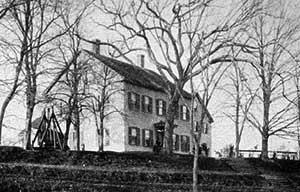Fourierism and Brook Farm Post 1
The inhabitants of Brook Farm were a very special group of intellectuals and artists. Many Utopian communities included a sophisticated intellectual and cultural life in their community, but the individuals who lived in and visited Brook Farm, such as Nathaniel Hawthorne and Ralph Waldo Emerson were of a different intellectual capacity. Such a concentration of talent in one community must have provided many truly fascinating dinnertime conversations. In fact, the community was formed precisely so that people with similar interests could live together and learn from each other and stimulate each other’s creativity.
The formation of Brook Farm, and then its transition to Fourierism is also very unique. Most Fourierist communities were founded as Fourierist communities, but Brook Farm only converted to Fourierism after already existing as a community. I believe that this unique feature was critical to the communities success, and also shows a possible path to success for other communities if one wanted to build a Fourierist community.
In order to think about this community in the context of utopia, I would have to know more about the laws of the community. What was the agreement between members? What ideals and rules did they live by? How exactly did they divide work, and what would an average day look like? What did their living and dining arrangements look like? This last question would just be interesting because so many Utopian thinkers spend a significant amount of time talking about the physical structure of their communities land and living arrangements.
A research question that I would be interested in pursuing is more about Fourierist communities in general than it is about Brook Farm. I would like to know more about the role that religion was supposed to play in community life, according to Fourier, the role that it actually played in community life, and the role that it played in the failure of Fourierist communities.
